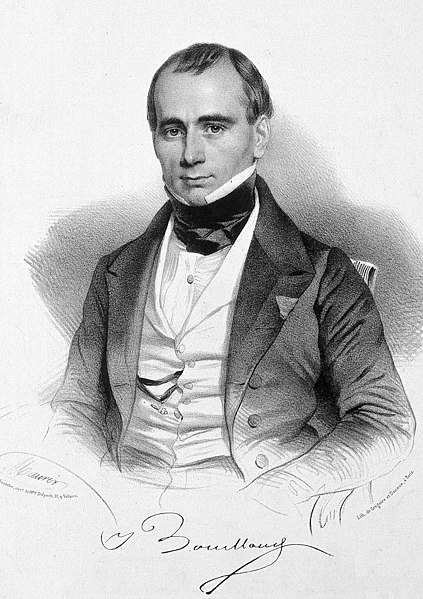Neuropsychology is a branch of psychology concerned with how a person's cognition and behavior are related to the brain and the rest of the nervous system. Professionals in this branch of psychology focus on how injuries or illnesses of the brain affect cognitive and behavioral functions.
Thomas Willis
Jean-Baptiste Bouillaud
Neural correlates of consciousness
The neural correlates of consciousness (NCC) are the minimal set of neuronal events and mechanisms sufficient for the occurrence of the mental states to which they are related. Neuroscientists use empirical approaches to discover neural correlates of subjective phenomena; that is, neural changes which necessarily and regularly correlate with a specific experience. The set should be minimal because, under the materialist assumption that the brain is sufficient to give rise to any given conscious experience, the question is which of its components are necessary to produce it.
The neuronal correlates of consciousness (NCC) constitute the smallest set of neural events and structures sufficient for a given conscious percept or explicit memory. This case involves synchronized action potentials in neocortical pyramidal neurons.
The Necker Cube: The left line drawing can be perceived in one of two distinct depth configurations shown on the right. Without any other cue, the visual system flips back and forth between these two interpretations.
Midline structures in the brainstem and thalamus necessary to regulate the level of brain arousal. Small, bilateral lesions in many of these nuclei cause a global loss of consciousness.





